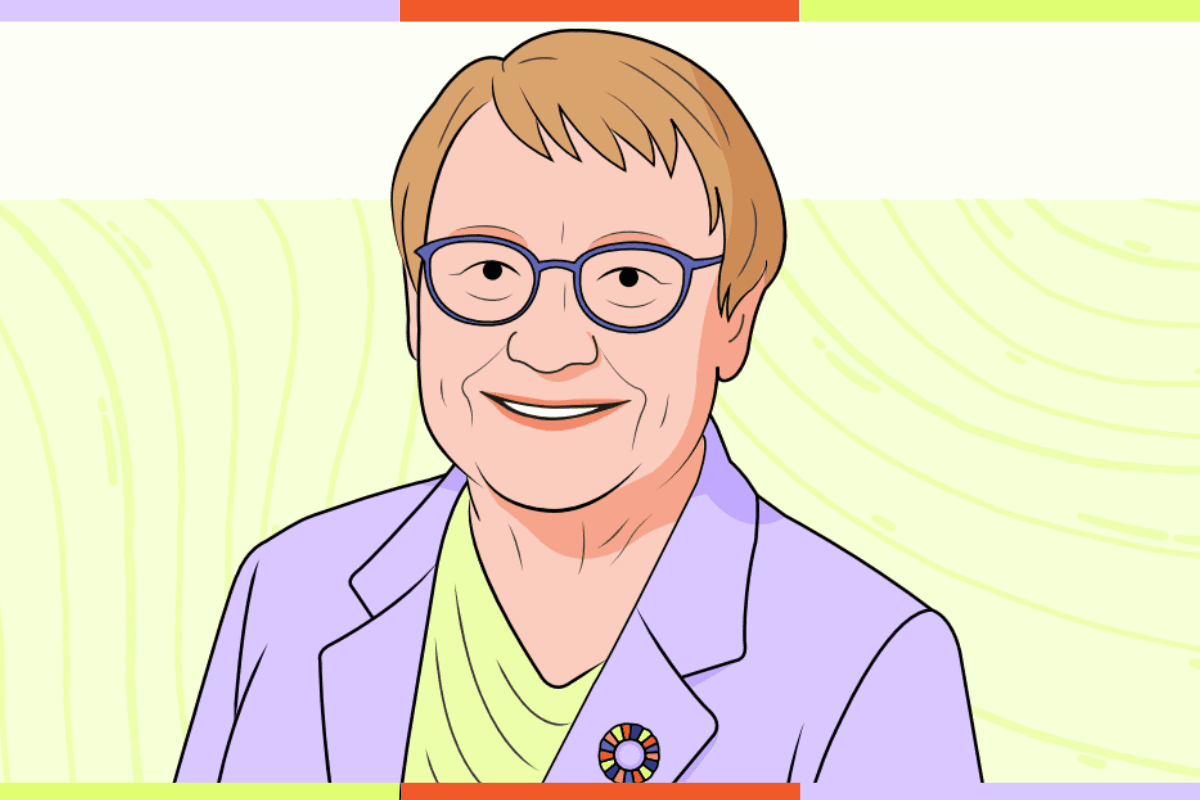Tarja Halonen: Guarding Beijing Legacy Amid New Challenges

Share
From “GWL Voices at Beijing 1995: Stories of Leadership, Legacy, and Change” read the full interview with Ms. Tarja Halonen thirty years after the Fourth World Conference on Women in Beijing, 1995. Ms. Halonen is a GWL Voices member and former President of Finland. During the Fourth World Conference on Women she was serving as Minister for Foreign Affairs of Finland.
1. Reflecting on your role as Finland’s Minister for Foreign Affairs at the 1995 Beijing Conference, what moments or interactions during the event most deeply shaped your understanding of global gender equality challenges?
The Beijing World Conference on Women put women’s rights on the political agenda and forced the global community to understand that women’s rights are not a marginal issue but central to all political decision-making. I remember well the spirit of Beijing and the solidarity between women throughout the negotiation process. Beijing gave hope to millions of women all over the world and exceeded expectations. The work continues to ensure that women would enjoy the rights that they have been promised also in real life.
2. At Beijing, you emphasized the need for practical measures beyond laws to achieve real equality. How did your experiences at the conference influence your approach to implementing gender equality policies later as Finland’s President?
In Beijing, we achieved a visionary roadmap for gender equality. Women’s rights were declared to be legally-binding human rights. Throughout the past three decades, the Platform of Action has driven multiple changes around the world, including in Finland.
Finland is a pioneer on women’s rights and has become a steward of gender equality. Finland was the first country in the world to grant both women and men full political rights. The strong commitment to gender equality has led to mainstreaming gender perspectives into all policy sectors. Global unity in Beijing for women’s rights gave us even more confidence to drive for gender equality.
Our challenge is that the world is changing all the time and gender equality is a process that creates new goals. Continuous work is necessary.
3. What do you see as the most urgent challenges facing women’s roles in global leadership today, and how can your experience from Beijing 1995 help shape the future for the next generation?
In many ways, we - both those who attended the Forum and new generations since - are still on the same journey to make gender equality a reality. The speed varies but the journey does not stop.
At the time of the Beijing conference, the situation of women’s rights was difficult. But the anti-gender movement that openly challenges the progress on gender equality has grown and strengthened afterwards, especially in western world. We should take the anti-gender movement very seriously. The backlash on women’s rights is growing stronger at the same time when the global crises are affecting women and girls hardest.
I would also like to highlight the role of women and girls in combatting the accelerating climate and environmental crisis. Women and girls—especially in rural and indigenous communities—are disproportionally affected by the impacts of warming climate and environmental degradation. But women are also at the forefront of the solution.
As the UNCCD Land Ambassador, I have been working on women’s equal participation and land rights. Our HerLand campaign highlights women and girls’ vital role in agriculture and global land restoration efforts. I firmly believe that empowering women and girls is one of the most impactful things that we can do to achieve a sustainable future.